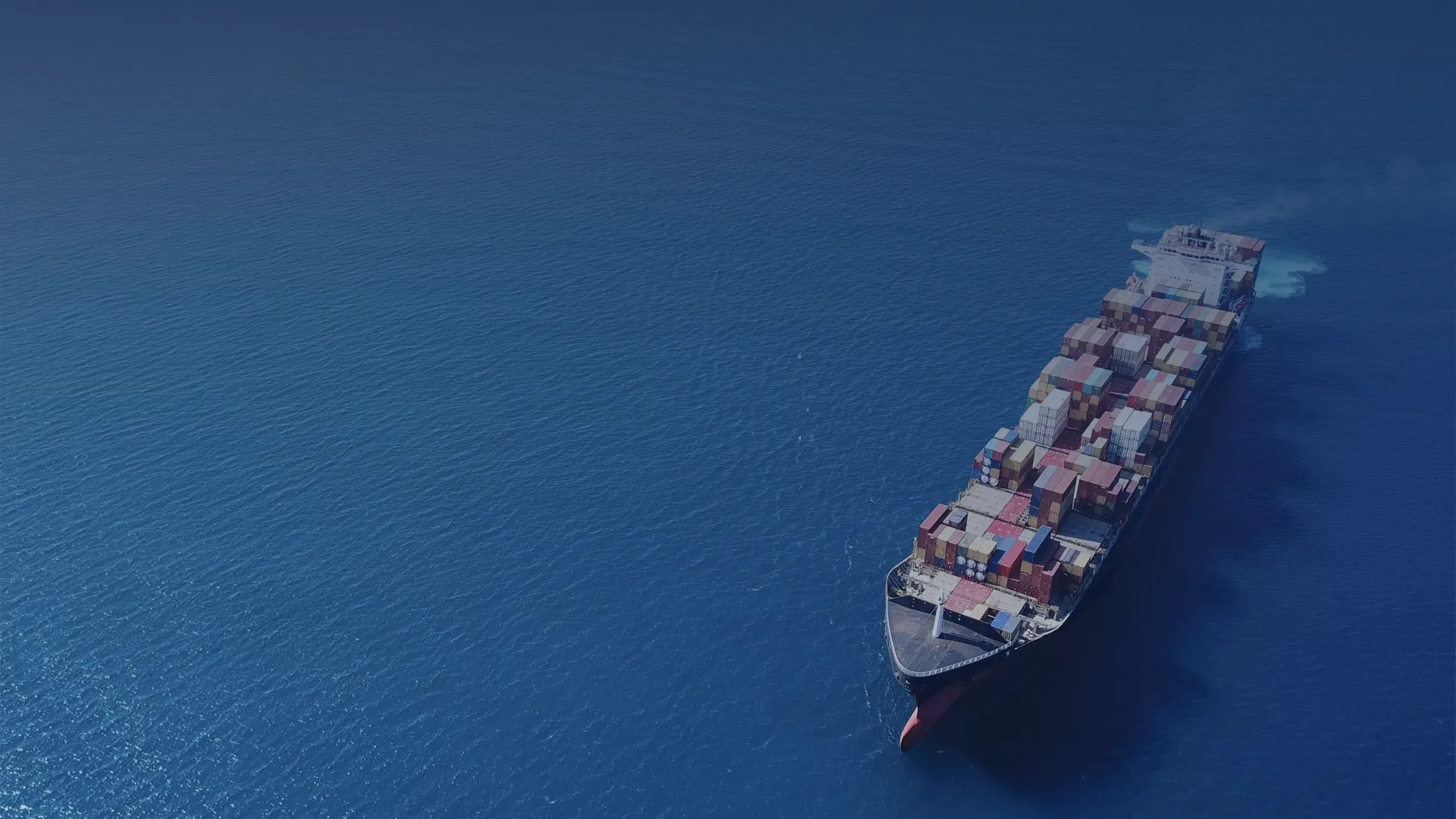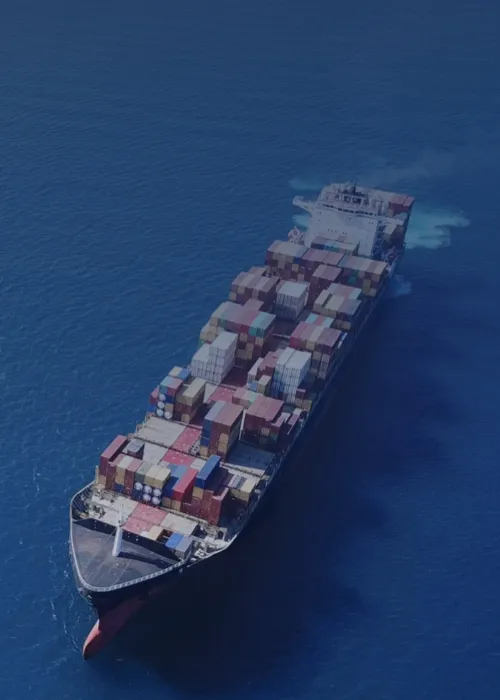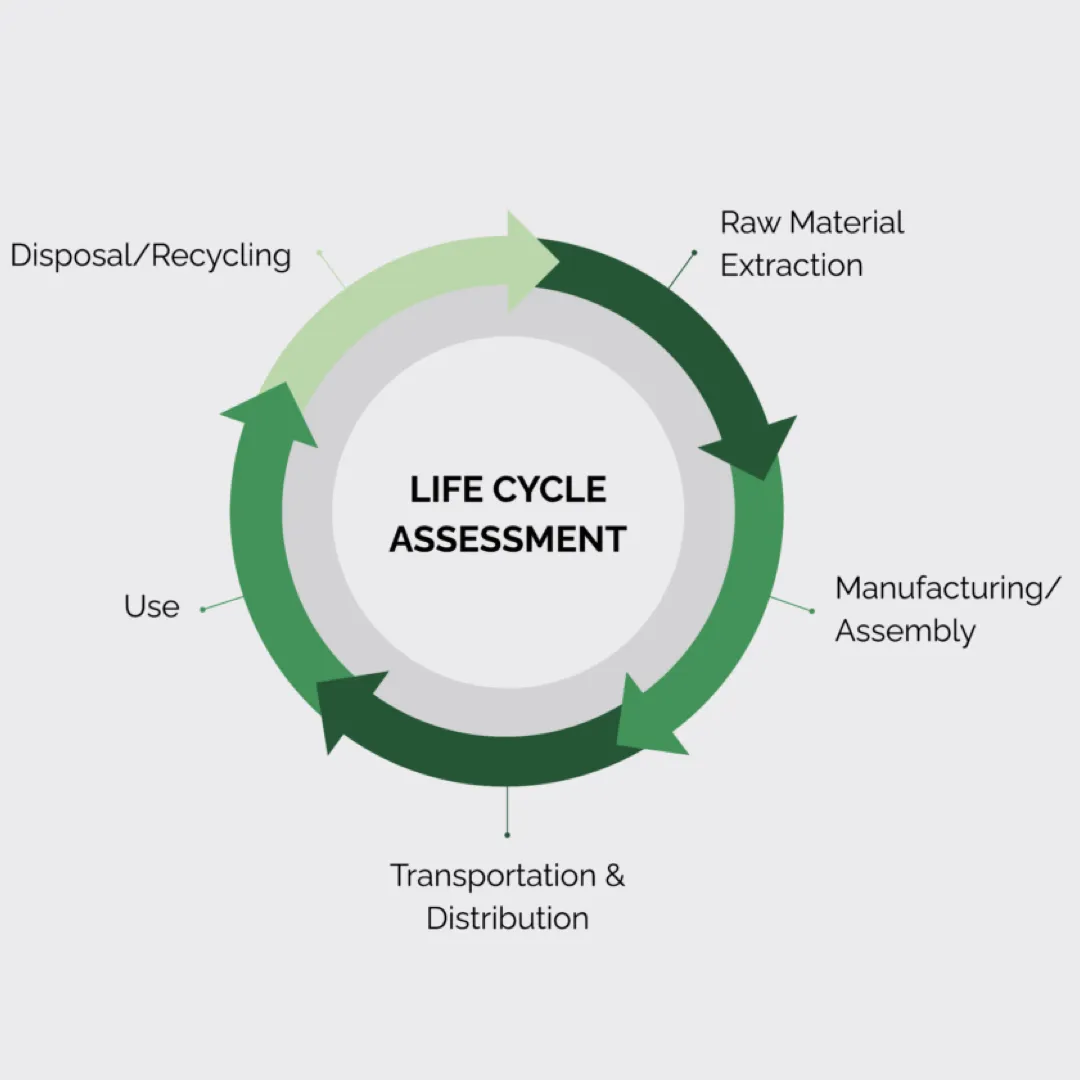
Life Cycle Assessment (LCA) for Shipping
Life Cycle Assessment (LCA), also known as Life Cycle Analysis, is a comprehensive methodology used within the shipping industry to conduct a thorough evaluation of ecological impact. This approach is relevant for both new and existing vessels, providing the opportunity to assess a wide range of emissions, including direct emissions from your facilities, indirect emissions resulting from purchased energy, indirect emissions within your value chain, and the environmental impact of individual products for manufacturers and suppliers. Discover our partner’s Life Cycle Assessment (LCA) services, specifically designed to meet the needs of the shipping industry. These assessments help you analyze environmental impact, identify improvement areas, and ensure sustainability within your ESG strategy.

Life Cycle Assessment (LCA) for Shipping
Discover our partner’s Life Cycle Assessment (LCA) services, specifically designed to meet the needs of the shipping industry.

Existing Fleet
A comprehensive methodology is applied to assess the environmental impacts of your existing vessels throughout their entire lifecycle. By collecting, validating, and analyzing relevant Environmental Product Declarations (EPDs), not only does it provide an in-depth understanding of your environmental impact, but it also expands the EPD database by conducting LCAs for more shipping companies. This not only leads to a more efficient workflow but also provides a cost-effective solution for you as a customer.
Additionally, Carbon Emission Computation (CEC) is also offered as a specific service within LCA, focusing on measuring carbon emissions.
Newbuild Ships
If you are considering investing in sustainable technologies to make your future newbuild ship more environmentally friendly, this LCA service can provide you with valuable insights. The results of this LCA serve as the basis for creating an Environmental Product Declaration (EPD). This powerful tool enables you to effectively communicate the sustainability of your new vessel to potential buyers, investors, and other stakeholders. Moreover, if your ship is demonstrably more sustainable than that of your competitors, you can simultaneously gain a competitive advantage by presenting measurable data.
Business Operations
This life cycle analysis covers relevant aspects of your business operations, from raw material extraction and production processes to waste management, including transportation and energy consumption. Various greenhouse gases, such as CO2, CH4, N2O, HFCs, PFCs and SF6, are examined, carefully assessing the three main categories of emissions: scope 1 (direct emissions from facilities), scope 2 (indirect emissions resulting from purchased energy), and scope 3 (indirect emissions within the value chain). This comprehensive approach provides detailed insight into environmental impact and serves as the basis for sustainable decision-making.

For manufacturers and suppliers, there is also the opportunity to conduct an LCA for individual products.
Guidelines and Standards
The techniques applied for Life Cycle Assessments (LCAs) adhere to rigorous guidelines and standards, including the GHG Protocol (Greenhouse Gas Protocol), globally recognized for measuring and reporting greenhouse gas emissions. Additionally, ISO 14040 and ISO 14067 standards are followed, international norms providing detailed guidelines for conducting life cycle analyses and accurately measuring and reporting the carbon footprint of products.
ESG
In the maritime sector, companies are required to publish comprehensive reports on their sustainability, social responsibility, and governance performance. This reporting, also known as ESG reporting, is essential for promoting transparency regarding sustainability and for complying with regulations such as the Corporate Sustainability Reporting Directive (CSRD).
The life cycle analysis services are fully aligned with ESG standards, allowing this tool to seamlessly integrate with the ESG reporting service. For example, data from the Environmental Product Declaration (EPD) regarding indirect emissions in your value chain (scope 3) are directly accessible through the ESG application.
Existing Fleet
A comprehensive methodology is applied to assess the environmental impacts of your existing vessels throughout their entire lifecycle.
Newbuild Ships
If you are considering investing in sustainable technologies to make your future newbuild ship more environmentally friendly, this LCA service can provide you with valuable insights.
Business Operations
This life cycle analysis covers relevant aspects of your business operations, from raw material extraction and production processes to waste management, including transportation and energy consumption.

For manufacturers and suppliers, there is also the opportunity to conduct an LCA for individual products.
Guidelines and Standards
The techniques applied for Life Cycle Assessments (LCAs) adhere to rigorous guidelines and standards, including the GHG Protocol (Greenhouse Gas Protocol), globally recognized for measuring and reporting greenhouse gas emissions. Additionally, ISO 14040 and ISO 14067 standards are followed, international norms providing detailed guidelines for conducting life cycle analyses and accurately measuring and reporting the carbon footprint of products.
ESG
In the maritime sector, companies are required to publish comprehensive reports on their sustainability, social responsibility, and governance performance. This reporting, also known as ESG reporting, is essential for promoting transparency regarding sustainability and for complying with regulations such as the Corporate Sustainability Reporting Directive (CSRD).
The life cycle analysis services are fully aligned with ESG standards, allowing this tool to seamlessly integrate with the ESG reporting service. For example, data from the Environmental Product Declaration (EPD) regarding indirect emissions in your value chain (scope 3) are directly accessible through the ESG application.
Frequently Asked Questions
What is the concrete added value of an LCA in shipping?
Conducting a Life Cycle Assessment (LCA) can be of significant value in meeting regulations such as the Corporate Sustainability Reporting Directive (CSRD), which came into effect on January 5, 2023. Implementing an LCA can significantly contribute to accurately measuring and improving your obligations regarding sustainability reporting (ESG), as prescribed by the CSRD.
What is the ECI in shipping and how does it relate to LCA?
If you are considering reducing the environmental impact of your vessel by investing in energy-saving solutions such as Energy Saving Devices (ESDs), a more efficient hull design, wind-assisted propulsion systems, and air lubrication, the Environmental Cost Indicator (ECI) can help you clearly visualize the actual reduction achieved. This tool consolidates all relevant environmental effects into one easy-to-understand figure.
The ECI used within shipping is closely related to a Life Cycle Assessment (LCA) because the data used for ECI calculation is often collected through an LCA. This provides you with in-depth insight into the environmental impact of your maritime activities.
